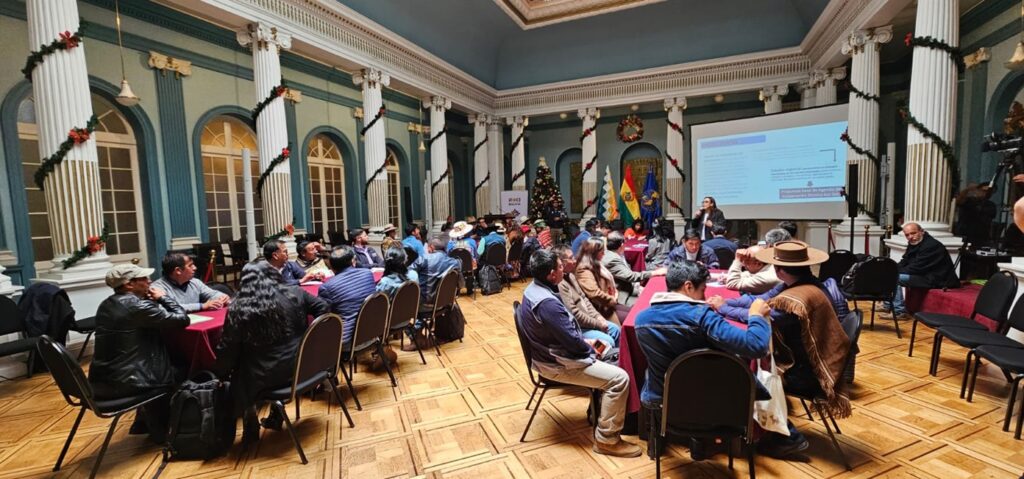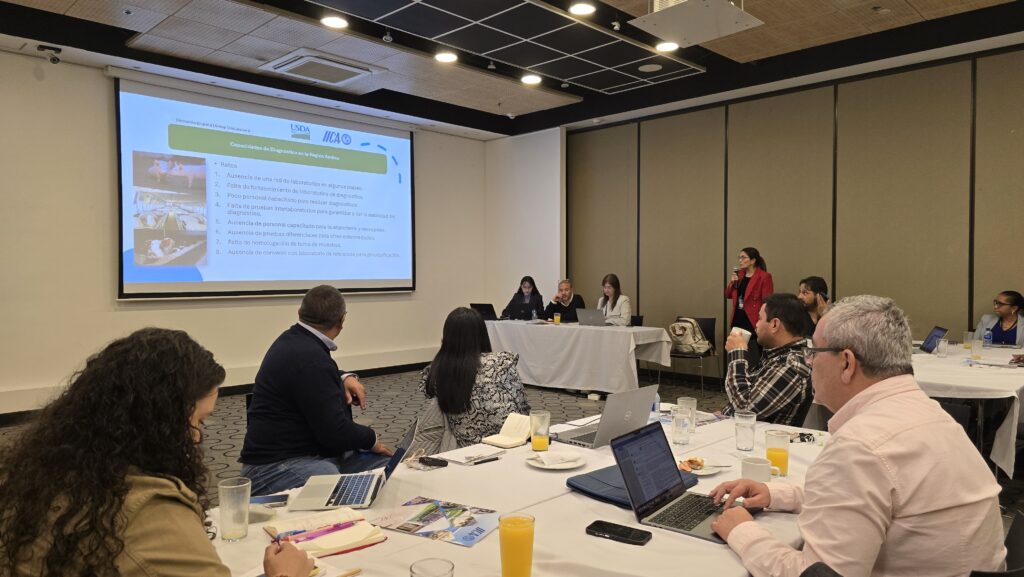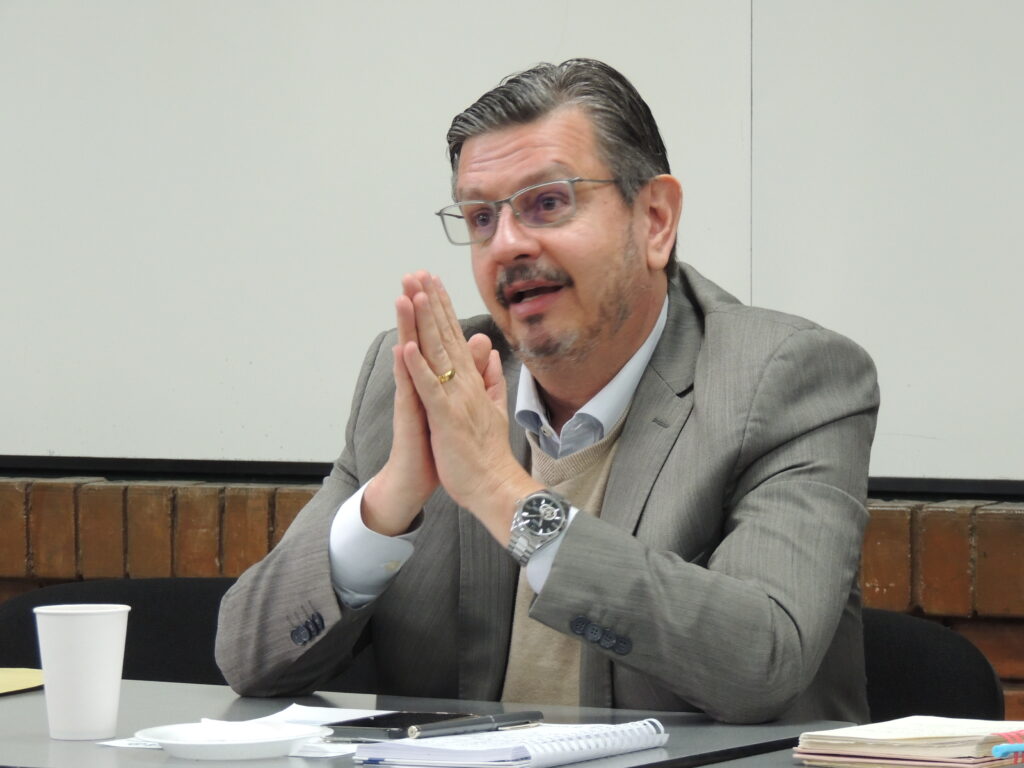Representantes del IICA fueron parte de la inauguración del encuentro, que se desarrolla bajo el lema “Paz con la Naturaleza” y contó con la presencia del presidente colombiano, Gustavo Petro.
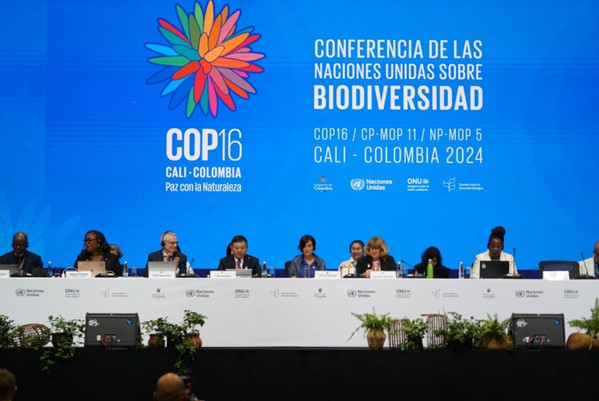
Cali, Colombia, 24 de octubre de 2024 (IICA) – El Instituto Interamericano de Cooperación para la Agricultura (IICA) participa en la Conferencia de las Naciones Unidas sobre Biodiversidad (COP 16), que reúne a representantes de gobiernos y organizaciones de todo el mundo en Cali, Colombia, en la que destacó el papel central que pueden jugar la bioeconomia y las soluciones badas en la naturaleza para seguridad alimentaria y la conservación ambiental.
Representantes del IICA fueron parte de la inauguración del encuentro, que se desarrolla bajo el lema “Paz con la Naturaleza” y contó con la presencia del presidente colombiano, Gustavo Petro.
La Conferencia de las Partes (COP) es el órgano supremo de toma de decisiones sobre el Convenio sobre la Diversidad Biológica, que fue firmado por líderes de 150 países en la Cumbre de la Tierra de Río de Janeiro en 1992. Este convenio promueve el desarrollo sostenible a través de una visión que involucre a los ecosistemas y a las personas.
Breno Tiburcio, Representante del IICA en Colombia; Muhammad Ibrahim, Director de Cooperación Técnica del IICA; Pedro Rocha, Especialista Internacional en Biotecnología y Bioseguridad; y Astrid Pulido, Especialista Nacional en Recursos Naturales y Cambio Climático del IICA Colombia fueron observadores en la primera sesión plenaria de la COP, en una reunión presidida por Susana Muhamad, Ministra de Ambiente de Colombia, quien fue nombrada Presidenta de la COP16.
Tiburcio destacó el enfoque del IICA en la integración de la conservación de la biodiversidad y la producción agrícola sostenible, subrayando el papel crucial de la agrobiodiversidad para la resiliencia de los sistemas agroalimentarios.
“El IICA promueve un enfoque de paisaje que integra la conservación de la biodiversidad y la producción agrícola sostenible, enfatizando el rol de la agrobiodiversidad en la resiliencia y sostenibilidad de los sistemas agroalimentarios. Las soluciones basadas en la naturaleza y la bioeconomía son pilares de esta estrategia, por su capacidad para aportar a la conservación de la biodiversidad y al desarrollo agrícola en América Latina y el Caribe. La participación del IICA en la COP 16 se alinea con su iniciativa Alianza Continental para la Seguridad Alimentaria y el Desarrollo Sostenible en las Américas, que impulsa políticas y capacidades para sistemas agroalimentarios resilientes, inclusivos, sostenibles y competitivos”, sostuvo Tiburcio.
La COP16 es organizada por el Ministerio de Ambiente y Desarrollo Sostenible de Colombia en colaboración con la Convención sobre la Diversidad Biológica (CDB) de las Naciones Unidas. Cuenta con la participación de más de 145 delegaciones de todo el mundo, así como de organizaciones internacionales como el Programa de las Naciones Unidas para el Medio Ambiente (PNUMA), actores locales, grupos indígenas y el sector privado. Los principales temas tratados incluyen la conservación, la restauración de ecosistemas y el financiamiento para la acción ambiental.
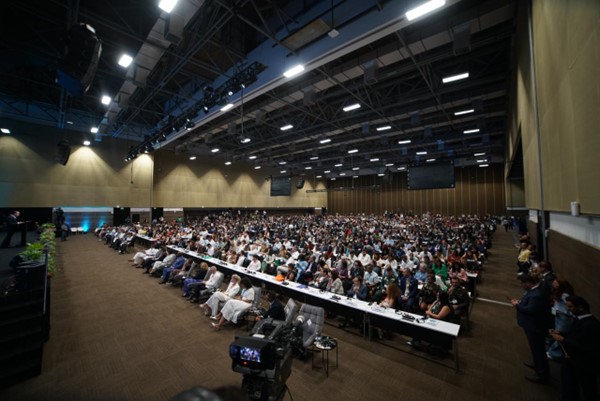
“Tenemos que trabajar de manera mancomunada sobre la base de principios, y para ello tenemos que ser plenamente transparentes. Debemos deliberar de manera sincera. Es normal que sea difícil acordar algunos elementos en estos procesos multilaterales, pero hay que estar dispuestos a llegar a fórmulas de convergencia, y esto será fundamental para el éxito de esta conferencia”, afirmó Susana Muhamad, Presidenta de la COP y Ministra de Ambiente y Desarrollo Sostenible de Colombia.
Por su parte, la secretaria ejecutiva del Convenio de Diversidad Biológica (CDB), Astrid Schomaker, dijo que “la comunidad mundial debe aprovechar este momento para garantizar que la biodiversidad no sólo se preserve, sino que también se restaure y se valore por el papel crucial que desempeña en el sostenimiento de la vida en la Tierra. La COP16 es el momento de pasar de las palabras a los hechos. El futuro de la vida en nuestro planeta depende de ello”.
El IICA participa en la COP 16 en las negociaciones del Protocolo de Cartagena sobre Seguridad de la Biotecnología y del Protocolo de Nagoya sobre Acceso a los Recursos Genéticos. Estas negociaciones son cruciales para definir marcos regulatorios que promuevan el uso responsable de la biotecnología y la equidad en el acceso y distribución de los beneficios derivados de los recursos genéticos.
Más información:
Gerencia de Comunicación Institucional
comunicacion.institucional@iica.int
